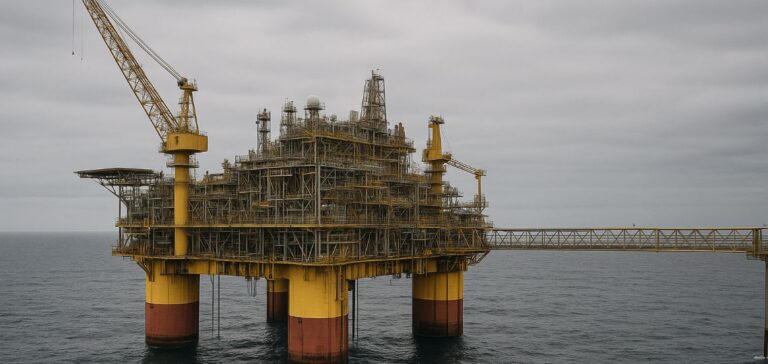Eni confirmed the preliminary results of the Capricornus 1-X well drilled offshore Namibia in the Orange Basin, according to a statement from Rhino Resources published on April 24. The well, drilled with the Noble Venturer drillship, reached total depth on April 2, encountering a Lower Cretaceous reservoir.
A high-quality reservoir without water contact
The well revealed 38 metres of net pay, characterised by good petrophysical properties and no observed water contact. Hydrocarbon samples and sidewall cores were collected during intensive wireline logging operations. This data acquisition allowed for precise documentation of the reservoir’s characteristics.
In addition to wireline operations, a production test was carried out across the oil-bearing zone, confirming a surface-constrained flow rate exceeding 11,000 standard barrels per day (stb/d) on a 40/64-inch choke. The extracted light oil has a density of 37° API with a carbon dioxide content below 2% and no hydrogen sulphide detected.
A step forward for PEL85 partners
The Capricornus 1-X well will now be temporarily plugged and abandoned, and the drilling unit will be released. The drilling site is located on Petroleum Exploration License 85 (PEL85), operated by Rhino Resources with a 42.5% working interest.
The licence partners also include Azule Energy, holding an identical 42.5% stake, Namcor with 10%, and Korres Investments with 5%. Eni and bp each own 50% of Azule Energy, strengthening their presence in oil exploration in Southern Africa.
Laboratory studies are planned on the fluid samples collected to further characterise the properties of the discovered oil. No precise timeline has been communicated regarding future development steps on the PEL85 licence.





















